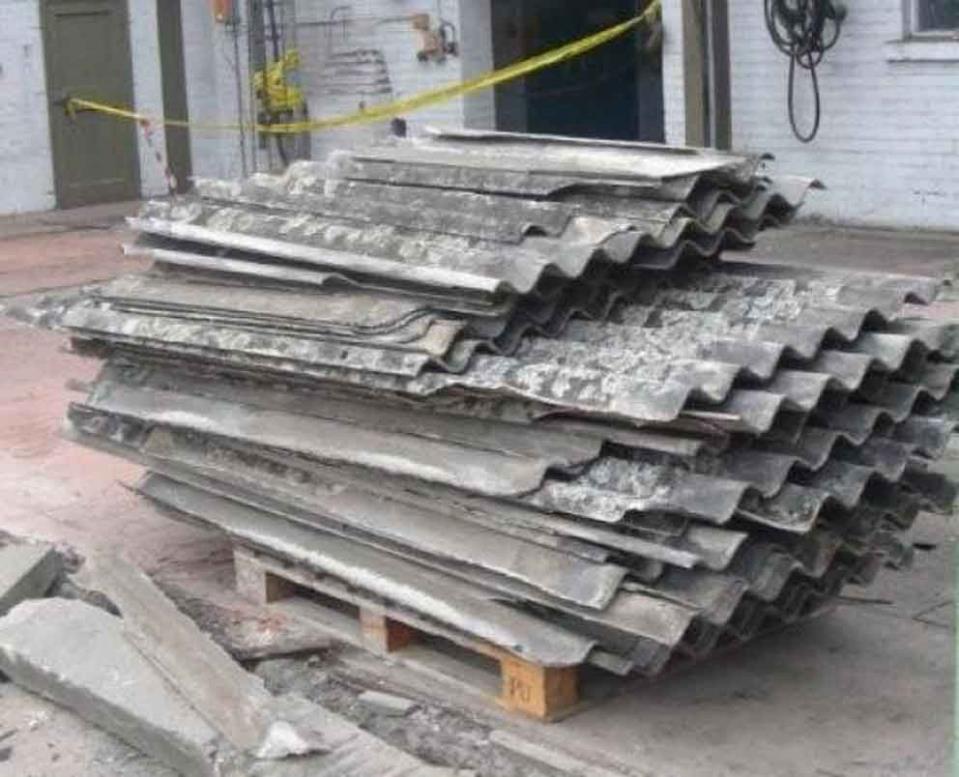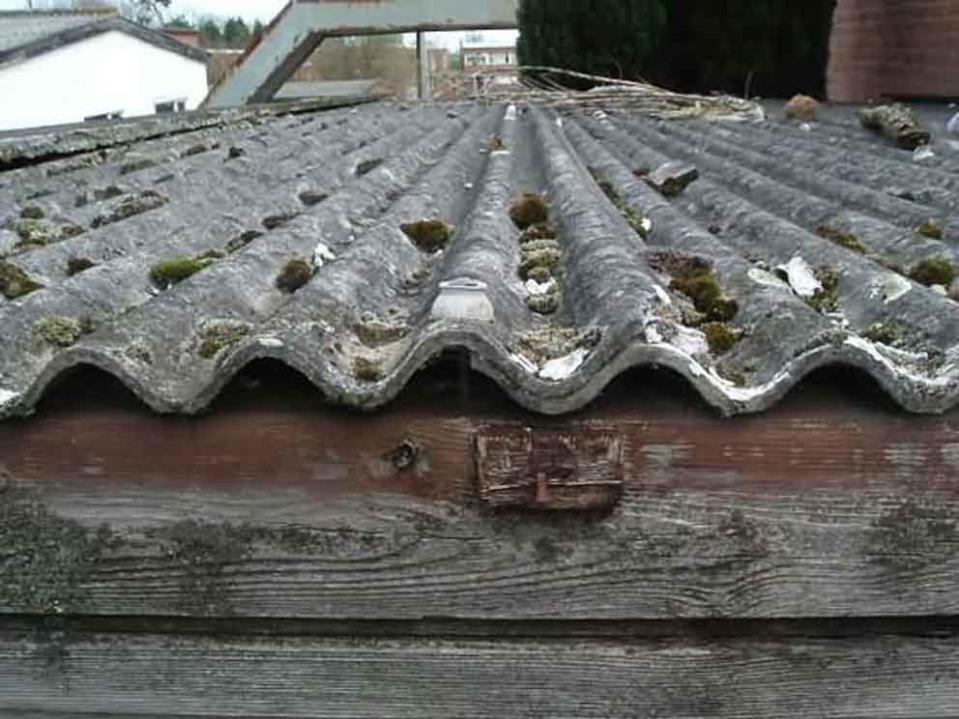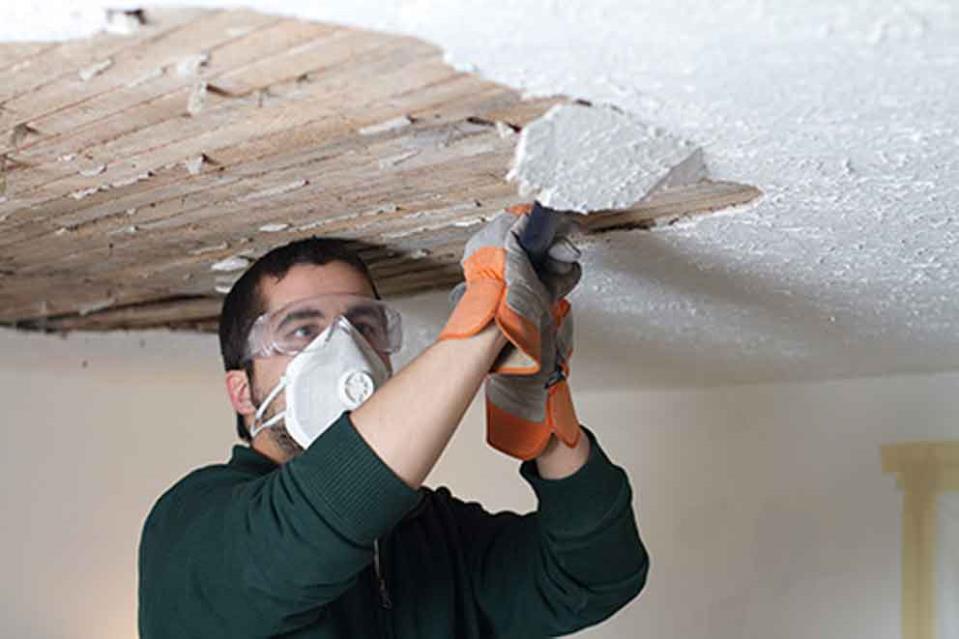A new study has found that the number of mesothelioma cases - the deadly cancer associated to asbestos exposure - is still rising in Malta and many other parts of the world.
The report, published by the Centre for the Study of Environmental Cancer - Italian League Against Cancer earlier this week, found the highest mesothelioma rates in Malta, the UK, The Netherlands, Belgium, Australia and New Zealand.
The report, which warned too many countries may be ignoring the risk, was published in the Indian Journal of Occupational and Environmental Medicine.
Italian researchers said that mesothelioma has reached epidemic proportions in parts of Europe and Oceania.
Asbestos has been banned in 55 countries, including Malta, but this does not mean that asbestos is not around us. In the case of Malta, an asbestos removal company speaking with this newspaper said that while other countries stopped the use of asbestos many years ago, Malta was not as fast in addressing the dangers, and asbestos-containing materials were still being used years later. This is what may have led to Malta being ranked as one of the countries to have the highest incidences of cancer associated with asbestos exposure.
The report observed that in the biennium 2005-2006, the age-specific incidence rate (ASIR) among Maltese men was higher than three per 100,000; wide fluctuations were seen in the following years with values of 2.20 in 2009 and of 1.06 in 2012. Among Maltese women, the rates ranged between 0.0 and 0.62.
In Italy, data collected by the National Mesothelioma Registry in 2008 showed the ASIR (on Italian population) among men was 3.55 per 100,000 for pleural mesothelioma and 0.24 for peritoneal mesothelioma; among women the rates were 1.35 and 0.12, respectively. In The Netherlands, the mean annual number of mesotheliomas registered in the period 2008-2011 was 526. In 2011, the ASIR was 2.85 per 100,000 among men, and 0.35 among women.
The foreign researchers were provided with data for Malta by the National Cancer Registry.

'Some people still regard asbestos as not dangerous and choose to handle material' - Asbestos removers
Oliver Fenech, General Manager of PT Matic Environmental Services Ltd, Alberta Group, told this newsroom that while asbestos may not be used anymore, it was certainly still used in Malta 20 or 25 years ago.
"The problem with asbestos is that for a long time, it is was considered as a 'miracle material' and was used extensively, in a wide range of applications. This has resulted in the material being present in a wide range of different locations and serving for different uses," he said. He was asked by this newsroom if he felt the use of asbestos is still rampant in Malta.
Asked if PT Matic receives a lot of requests to eradicate asbestos, he replied in the affirmative.
"We do get a considerable amount of requests for the safe removal and disposal of asbestos, which may range from the odd water tank inside a private residence to large-scale projects, such as the roof of a factory or insulation in a boiler house or inside vessels.
"Whichever the request, we always approach the job with the utmost care, ensuring the safe removal of the material which can only be carried out by certified technicians, complete decontamination of the site and proper disposal in line with all European regulations," he said.
He also pointed out that it is extremely difficult to eradicate asbestos completely.
"While a lot has been done in terms of projects for its removal from renowned areas like hospitals and war rooms, many derelict factories and other sites containing asbestos remain. Probably the largest collection of asbestos still present in Malta lies in the numerous sewage pipes that have been stored in an open field for many years in Hal Far, without anyone doing anything about this hazard."
Asked if it comes as a surprise to him that Malta ranks among the countries with a high incidence of the deadly cancer associated with asbestos exposure, he said: "While it may come as a surprise that Malta rates among the highest in the world for people diagnosed with the deadly cancer associated with asbestos exposure, this is probably linked to the fact that while other countries stopped the use of asbestos many years ago, Malta was not as fast to address the dangers, and asbestos-containing materials were still being used years later.
"Furthermore, public perception plays a huge role, as unfortunately, to this day, we still meet individuals who do not regard asbestos as dangerous and choose to handle the material, exposing themselves to the grave dangers of asbestos, induced cancer, in the process."
He said that asbestos was used in a wide range of different applications and locations. It was used in corrugated roof sheeting, soffit tiles, floor tiles, wall boarding, insulation around pipes and boilers, gaskets, water tanks and pipes, etc. This has resulted in its widespread use in both domestic and industrial applications, which means that without proper inspection, it may be found in any household or factory built up until 20 to 25 years ago.

Eight foreign nationals found to be using unused asbestos pipes as a means of shelter
Incidentally, a police raid which took place early yesterday morning led to the arrest of eight irregular migrants who were using unused asbestos pipes in a field at Hal Far as a means of shelter, close to the open centre.
The pipes have been laying there for years.
Police said that the men had official documents issued by the Italian authorities, and had travelled to Malta via catamaran from Sicily.
Five men were of Ghanaian nationality and two others were Togo nationals. Another man was a Spanish national. He was released later in the day after the documents were verified by the police.
"Since these men have no means to sustain themselves, the Immigration Police is preparing to deport them back to the country where their residence permit was issued," the police statement read.

If disturbed, asbestos can have deadly effect
In an interview with The Malta Independent on Sunday back in 2006, Derek Broadley, then international consultant on asbestos removal, had said that asbestos is a very ubiquitous material and therein lies the problem. Since it was so widely used in so many applications in its 50- to 60-year lifespan, there is a great deal of it about and Malta is no different from the vast majority of other places. Since Malta has a British tradition and with the British forces having been here for so many years, asbestos was used in a lot of buildings."
While the handling, transport and disposal of asbestos has been strictly regulated through EU directives, the Basle Convention and Malta's Legal Notice 123, the material still poses a serious health threat to households not aware of the fact that many home fittings contain the lethal material.
And although asbestos is practically innocuous when in an inert state, if disturbed, during DIY activities for example, asbestos can lead to deadly effects - when its particles are inhaled - that sometimes do not make themselves apparent until decades later.
In its heyday, asbestos was hailed as a wonder material for its insulation, fireproofing and rigidity-enhancing qualities. The material is inert, widely available, easy to process and cheap. Such qualities made asbestos a very attractive option when it came to construction and other applications - so popular that it was used prolifically for decades between the pre-war period right up to the 1980s.